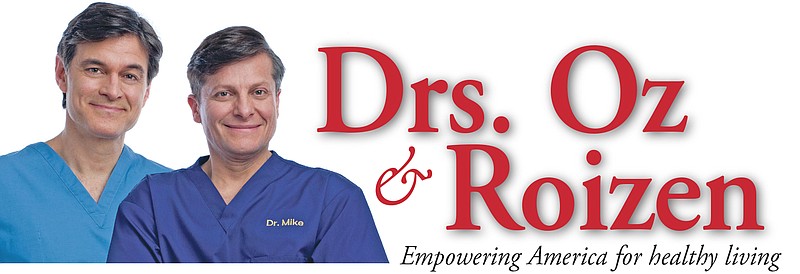"You have prediabetes," is a sentence that more than 88 million Americans would hear if they were diagnosed officially. But the Centers for Disease Control and Prevention estimates that fully 84% of folks with the condition don't know they have it. That's troubling. Not only is prediabetes a serious health risk all by itself, but it sets you up for major complications when it turns into full-blown Type 2 diabetes.
What is prediabetes? It's when you have elevated blood glucose levels that are above normal but not yet high enough for you to be diagnosed with diabetes. Testing can reveal it, if your
Hemoglobin A1c is 5.7 to 6.4%.
Fasting blood sugar is 100 to 125.
Glucose level is 140 to 199 two hours after a glucose challenge.
Prediabetes increases your risk for high blood pressure, heart disease and stroke. In fact, cardiovascular disease is the No. 1 killer of folks with prediabetes. Prediabetes also ups the risk for cancer, dementia and arthritis. In addition, data from the National Health and Nutrition Examination Survey show that approximately 18% of adults with prediabetes have chronic kidney disease. And the CDC's Diabetes Prevention Program found diabetic retinopathy, which can lead to blindness, developed in almost 8% of those with prediabetes and nearly 13% of those with prediabetes who went on to develop diabetes. Neuropathy that causes pain and inhibits walking can also develop when you have prediabetes.
Prediabetes isn't pre-anything! But smart choices can reverse it, and lower your risk of developing Type 2 diabetes by as much as 58% - by 71% if you are 60 or older. As the CDC says, ignore prediabetes and your risk for Type 2 diabetes goes up. Lose a modest amount of weight - say, 5% to 7% of your body weight - and get regular physical activity of 150 to 300 minutes a week, and your risk goes down.
The CDC's National Diabetes Prevention Program offers you ways to work with a trained coach and to learn to eat more healthfully (lots of plants and fruits, no added sugars, highly processed foods or red meats) and get more physical activity (minimum of 30 minutes five days a week). It also tackles stress management, helps you stay motivated and solve problems that can slow progress. To find a program near you, check out www.cdc.gov/diabetes/prevention/lifestyle-change.html. And take a look at the Dr. Mike's Wellness Programs at the Cleveland Clinic by searching for "prediabetes" at health.clevelandclinic.org.
Recent research also offers some additional and clever ways to increase your ability to defeat prediabetes and have a substantially younger RealAge.
Try adding cinnamon to your weekly routine. A new study from South Korea and Boston's Joslin Diabetes Center found that adding three 500-mg capsules of cinnamon (that's about a third of a teaspoon total) to your daily routine for 12 weeks lowered abnormal fasting glucose levels and improved the body's response to eating carbohydrates.
Make sure you get seven to eight hours of sleep nightly. Too much and too little are associated with decreased longevity in folks with diabetes, and we're betting prediabetes also makes sleep problems risky, because they shake up your metabolism and glucose management, which are already compromised. A study published in Diabetologia found that getting 10 or more hours sleep nightly when you have diabetes more than doubles the risk of death over a decade, and getting five or fewer hours of sleep a night increases the risk 63%.
Eat plenty of 100% whole grains. A study in the BMJ that included 4.6 million person-years of follow-up (whozzah!) found that participants who ate the most whole grains (whole-grain breakfast cereal, oatmeal, dark bread, brown rice, added bran and wheat germ) had a 29% lower rate of Type 2 diabetes compared with those eating the least. Two servings per day should help you prevent worsening of or help reverse prediabetes.
Mehmet Oz, M.D. is host of "The Dr. Oz Show," and Mike Roizen, M.D. is Chief Wellness Officer and Chair of Wellness Institute at Cleveland Clinic. To live your healthiest, tune into "The Dr. Oz Show" or visit sharecare.com.
(c)2020 Michael Roizen, M.D.
and Mehmet Oz, M.D.
King Features Syndicate

